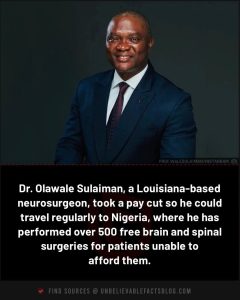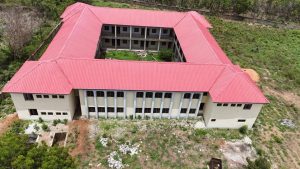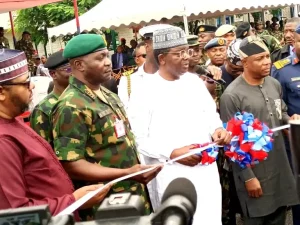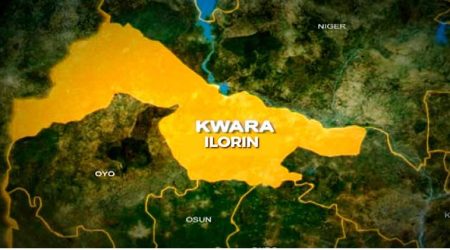The Moro Bridge collapse has dealt a devastating blow to the economy of Kwara and Oyo State, cutting off vital trade routes and leaving motorists, market traders, and commuters stranded.
The colonial-era bridge, in a state of disrepair for over a decade, has been the subject of numerous appeals to the government, all of which have fallen on deaf ears. The abandoned rebuilding project of the past administration only added to the frustration of the affected communities.
Available information gathered revealed that the past administration of the former President Muhammadu Buhari had initiated the rebuilding of bridge but later abandoned without a trace to the contractor.
The latest incident in the gradual collapse of the bridge crashed off it, preventing vehicular movement with its attendant economic losses.
No fewer than eight markets in Kwara and Oyo states have been affected as a result of the condition of the bridge. These include Mandala, Alapa, Igbeti (Oyo), Igboho (Oyo), Kishi (Oyo), Saki (Oyo), Kaiama and Baruten. Besides linking the eight towns, the bridge is the only route travellers ply to the neighbouring Benin Republic near Baruten in Baruten Local Government Area of Kwara State.
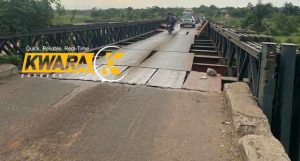
Also, the bridge is said to have constituted security threat to the Mandala Medium Security Prisons. Sources said movement of inmates from the prison to court has been stalled while the situation has heightened fear of robbery attacks on the federal highway.
Kwara Express gathered that motorists coming from Oyo State who could not pass through the dingy bush paths created as alternative routes were forced to go through Ogbomosho road.
Giving an insight into the bad condition of the bridge, an elder who lives around Okolowo recalled that the bridge was built as an emergency route by former Defence Minister, late Alhaji Akanbi Oniyangi who was one-time Wali of Ilorin.
“You will discover the bridge was constructed with iron steel and we have been appealing to the federal government to come to our aid and reconstruct this bridge. It is the only route that links Kwara to Oyo State and to Benin Republic; it is like the economic live-wire of many people, including motorists and the market people. Now people would be grumbling that we have increased transport fare but do we have option when we have to resort to a longer route because of the bridge?,” he said.
Kwara Express observed many private and commercial cars broken down along the patched alternative routes devised by the motorists while villagers cashed in on the situation to extort money from motorists, claiming the charges were a compensation for helping to patch up the access routes.
Some elderly market women who were returning from Alapa market where they had bought grains and yam flour were seen pushing a loaded taxi cab which developed a fault along the alternative route which motorists say would be equally impassable when the rains set in.
The market women after sighting our reporter appealed to him to help prevail on the government to come to their aids.
Mallam Amuda Isiaka in an interview with Kwara Express reporter criticised government for allegedly failing to reconstruct the bridge despite several appeals and complaints.
“We are not happy; we are very sad because this bridge is very central to our survival as business people, as motorists, as market men and women. I don’t know why the government has ignored our cries for years. This thing has not just started, it is a perennial problem we have been experiencing and we are suffering a lot”, said Amuda, an inhabitant in Alapa.
Also, a passenger, Alhaja Anike Tajudeen, confirmed that the situation has so many security implications, adding that armed robbers could take advantage of the situation to operate.
With the rainy season fast approaching, the already dire situation is only expected to worsen. The lack of government intervention has left the affected communities feeling abandoned, and their appeals for assistance have seemingly gone unanswered.
The Moro Bridge collapse highlights the urgent need for investment in infrastructure maintenance and development. Unless the government takes swift and decisive action, the consequences of this failure could be long-lasting and far-reaching.



